
Running out of hot water too quickly or hearing strange noises when you call for hot water? Use this water heater repair cost guide to see what a fix will cost.
The water heater that’s “heating up” the competition


Hybrid water heaters are a popular household appliance that’s energy-efficient, environmentally friendly, and long-lasting.
The cons of hybrid water heaters include their high installation cost, space limitations, and climate dependency.
Popular alternatives to hybrid water heaters are storage tanks and tankless water heaters.
Hybrid water heaters are ideal for homeowners who live in mild climates and want to save money on their energy bills.
Imagine enjoying endless hot showers while still saving money on your energy bills. Sounds like a dream right? It’s the reality and promise of a hybrid water heater. Before you take the plunge, you need the full picture — the benefits and the downsides. In this guide, we’ll explore the pros and cons of hybrid water heaters so you can decide if they’re the right choice for keeping your water warm and your wallet happy.
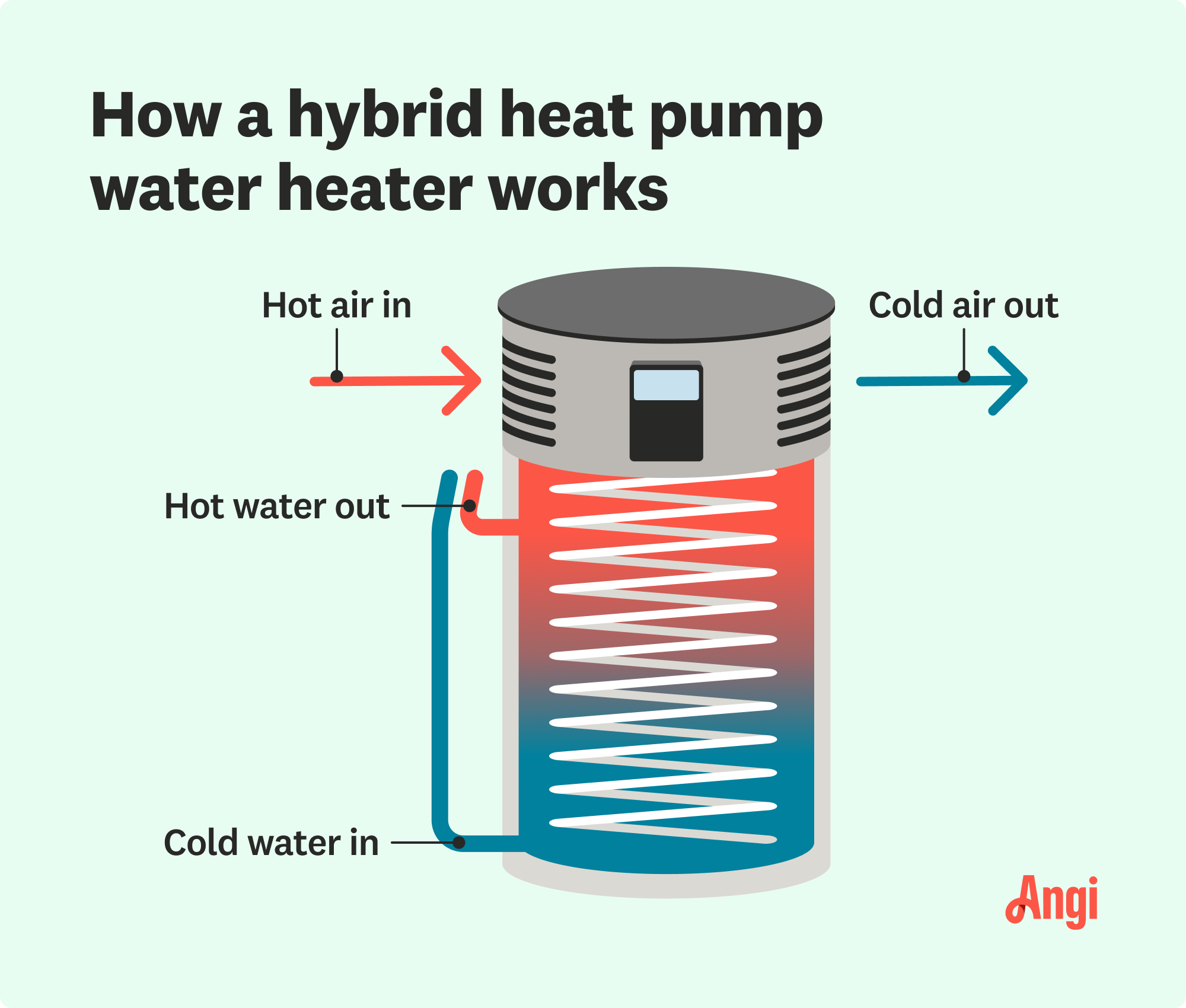
A hybrid water heater, sometimes called a heat pump water heater, is a twist on traditional water heaters because it uses ambient, warm air to heat your water. Unlike conventional water heaters that rely solely on electricity or gas to generate heat, a hybrid water heater extracts heat from the air, compresses it to elevate its pressure and temperature, and then uses this concentrated heat to warm the water in the tank. Many contractors often liken it to a “reverse refrigerator.” Instead of expelling hot air to cool its interior, a hybrid water heater pulls in hot air to warm things up.
Because a hybrid water heater moves heat instead of creating it, it uses less energy — making it a more energy-efficient and environmentally friendly alternative — and puts less stress on its system, giving it a longer lifespan. On the other hand, its space and climate requirements make it a less-than-perfect candidate for smaller homes and homeowners living in frigid or extremely hot areas.
| Pros | Cons |
|---|---|
| Energy efficient and environmentally friendly | Higher upfront cost |
| Long-term cost savings | Takes up lots of space |
| Longer lifespan | Not for cold climates |
| Potential tax credit | Complex installation |
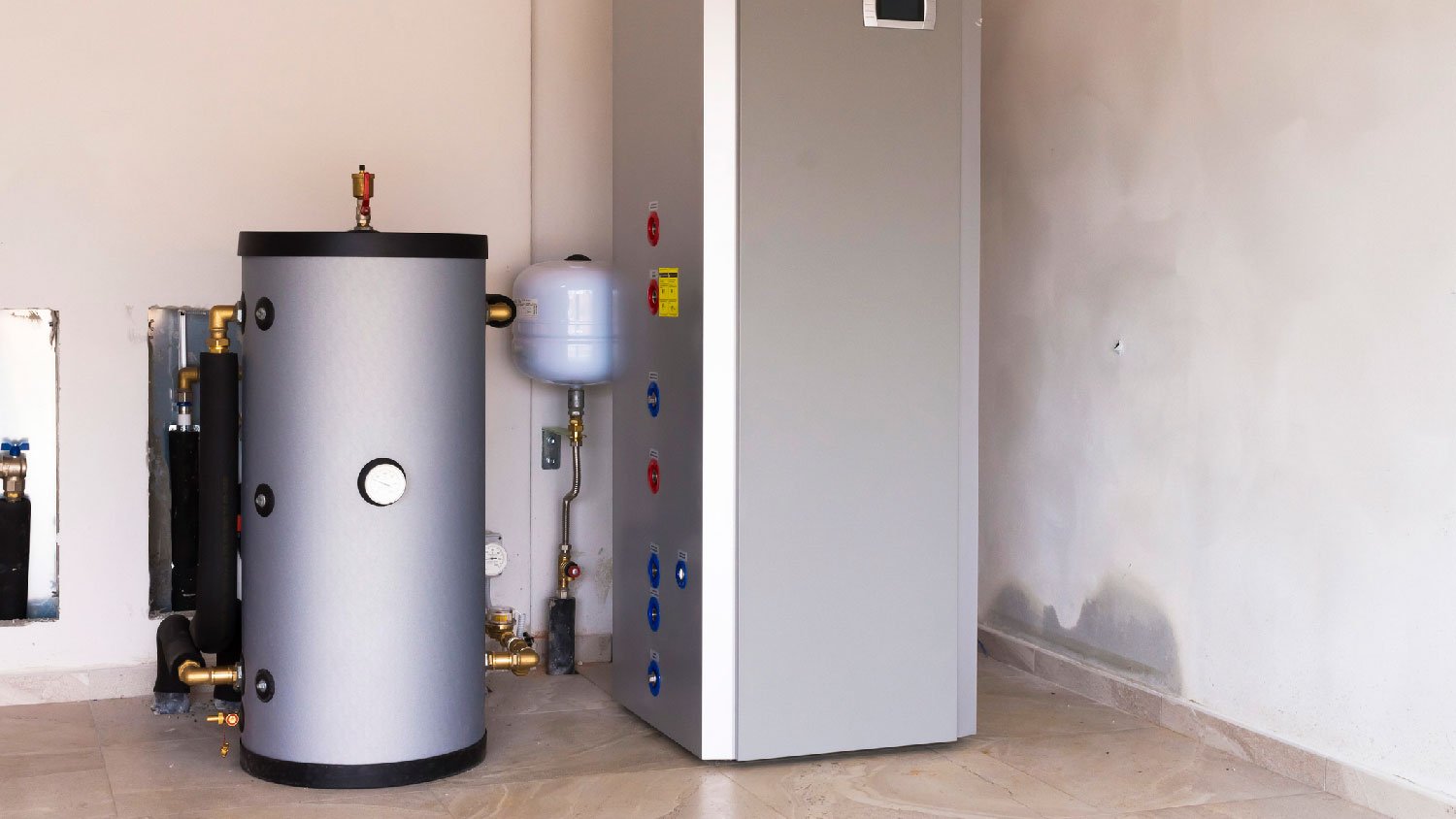
Hybrid water heaters can be an excellent investment because of their impressive energy efficiency. Coupled with their sustainability and long lifespan, they’re an obvious choice for eco-friendly homeowners who want to maximize long-term savings.
Hybrid water heaters take a creative approach to heating water. They use electricity to transfer heat rather than creating it from scratch. This allows them to operate two to three times more efficiently than traditional tank water heaters.
You’ll enjoy significantly reduced energy consumption and, in turn, much lower energy bills. According to Energy Star, a hybrid water heater can save a family of four approximately $550 per year on their energy bill, adding up to more than $5,600 in savings over the unit's lifespan. In most cases, the energy savings more than cover the additional upfront costs.
A hybrid water heater is a smart choice for homeowners who are interested in both protecting the environment and cutting down on energy expenses. By choosing a hybrid water heater, you’re reducing your energy usage which means lower carbon emissions and a smaller carbon footprint. If you want to take an environmentally-friendly approach to heating your home, a hybrid water heater is both efficient and sustainable.
Hybrid water heaters offer a longer lifespan than their more traditional alternative. While conventional water heaters last between eight to 12 years, hybrid models are built to last between 13 to 15 years. Because of their design and how they work, hybrid water heaters are “stress-free.” They don’t have to manage the added strain and wear and tear of generating heat directly. As a result, they deal with fewer problems, like corrosion, that quickly age conventional water heaters.
As of this article’s publication date, you can receive a tax credit for installing a hybrid water heater, provided that the property is located in the United States and is your actual residence. The government offers federal tax credits for homeowners who invest in energy-efficient appliances. Under the program, you can receive a credit of up to 30% of the cost—up to $2,000—of installing an energy-efficient hybrid water heater. For example, if your hybrid water heater costs $3,000, you could be eligible for a tax credit of $900. This incentive can help offset the high initial cost of hybrid models, but make sure you consult with a tax professional to maximize your savings.
While a hybrid water heater offers impressive energy efficiency and longevity, there are some downsides, including a higher initial cost than traditional models. Additionally, its performance is heavily dependent on your climate while its size considerations can make installing hybrid water heaters a headache for homeowners with limited space.
The average cost of hybrid water heaters ranges between $1,200 and $3,500, depending on factors such as the unit you purchase and any installation costs. In contrast, gas water heaters range from $700 to $2,700, while electric models typically fall between $600 and $3,500. If you can get past their higher up-front cost, hybrid water heaters offer tax and energy savings that make them worthwhile.
If you’re considering a hybrid water heater, you need to factor in its space limitations. This can be challenging for some homeowners because, unlike traditional water heaters, hybrid models can be a little larger and need more space for proper ventilation. Remember — they work by pulling surrounding air into the tank. You need enough clearance around the unit to ensure optimal airflow and performance which can be difficult in smaller utility rooms or tight spaces.
EnergyStar recommends installing a hybrid water heater in a sufficiently large room — an 8-ft by 12-ft room (or bigger) with a minimum of 450 to 700 cubic feet of free air space where the heater is installed.
Hybrid water heaters aren’t ideal for all climates. Because they need to extract heat from the surrounding air, they work best in mild climates where temperatures range between 40ºF and 90ºF year-round. In colder climates, where outside temperatures frequently dip below freezing, or in tight spaces with insufficient warmth, hybrid water heaters will struggle. This is because they rely on ambient heat to work and can actually cool their surrounding area, lowering their efficiency even more.
Hybrid water heaters’ larger size means they’re heavier and more challenging to put in place. The average standard water heater installation costs $1,300, but plan to pay between $1,200 and $3,500 for a hybrid heat pump replacement.
Location also matters—you’ll likely pay more for installation in hard-to-reach areas. If you need permits pulled, budget between $25 and $300, depending on where you live. If the installation requires plumbing or electrical work, plan to pay $45 to $200 per hour for a plumber and $50 to $100 per hour for an electrician.
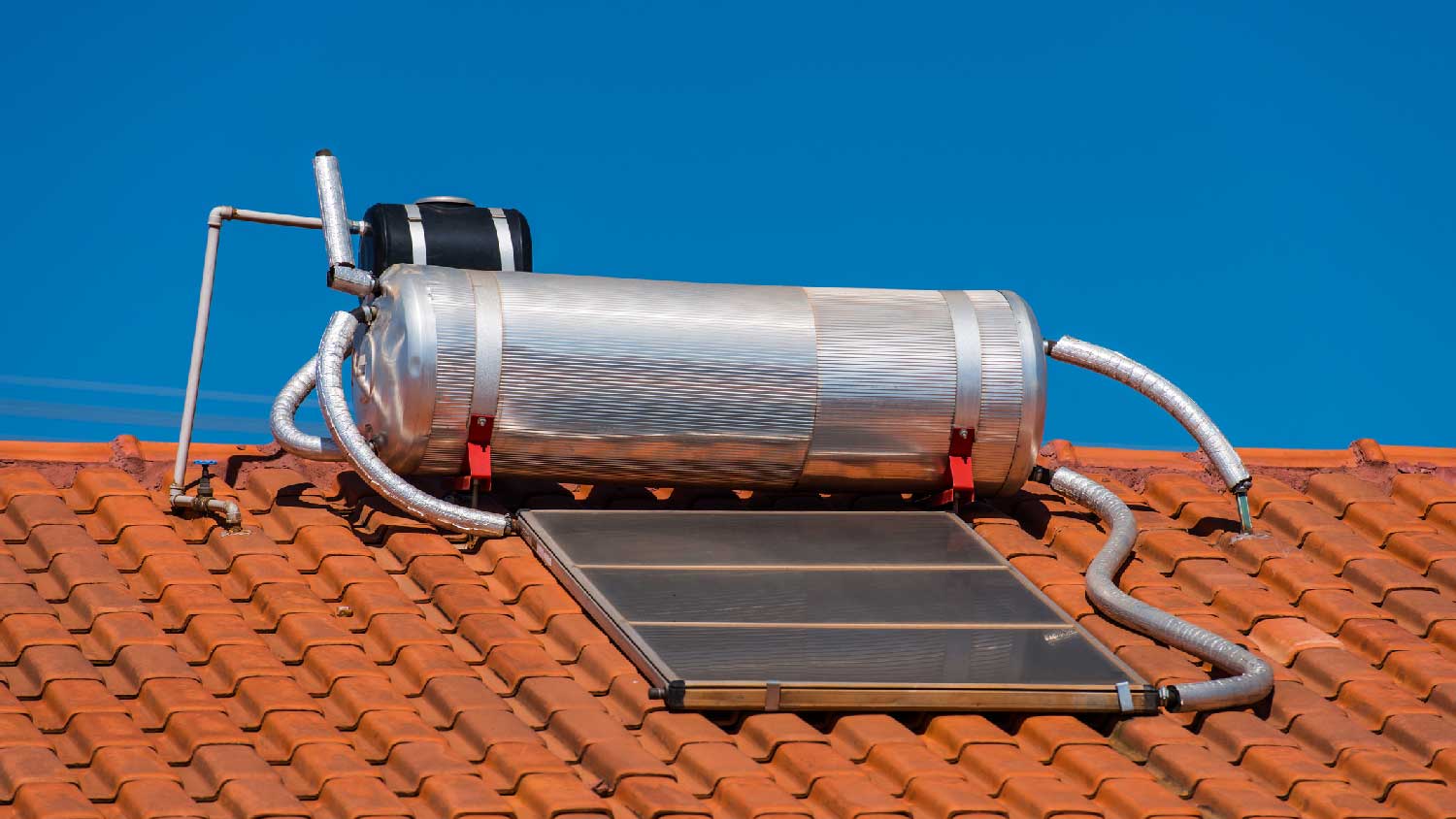
If a hybrid water heater isn’t right for your home, don’t worry — there are plenty of other options to choose from. These alternatives include water heaters for homeowners who are looking to save space instead of making room for a bulky storage tank. If you like the energy-conscious hybrid water heater, you can choose other eco-friendly options if you live in a sunny climate and want to lower your carbon footprint.
Some of the most common types of water heaters among homeowners include:
Storage tank
Tankless
Solar
Condensing
Point of Use
Smart Water Heater
A hybrid water heater may (or may not) be the best choice for your home. Your decision requires evaluating several factors to make sure you meet your needs.
Start by considering your hot water usage and family size. If your household has a high demand for hot water, a hybrid model’s efficiency and large capacity might be a great fit. However, if you live in a climate where the temperatures often drop below 40 degrees Fahrenheit or soar past 90 degrees, you’ll want to reconsider to avoid its performance issues. Lastly, you have to consider the cost. Hybrid water heaters offer long-term savings on energy bills. You have to determine whether the up-front cost aligns with your budget and if the potential energy savings justify the expense.
If you decide to move forward with a hybrid water heater, make sure you hire a local water heater installation professional. Installing a hybrid water heater isn’t a DIY-friendly project most homeowners should consider tackling. It may require accessing and changing your home’s plumbing, gas, and electrical systems — a dangerous task if you don’t know what you’re doing. Plus, hiring an expert helps guarantee that your hybrid water heater works safely and efficiently for as long as possible.
From average costs to expert advice, get all the answers you need to get your job done.

Running out of hot water too quickly or hearing strange noises when you call for hot water? Use this water heater repair cost guide to see what a fix will cost.
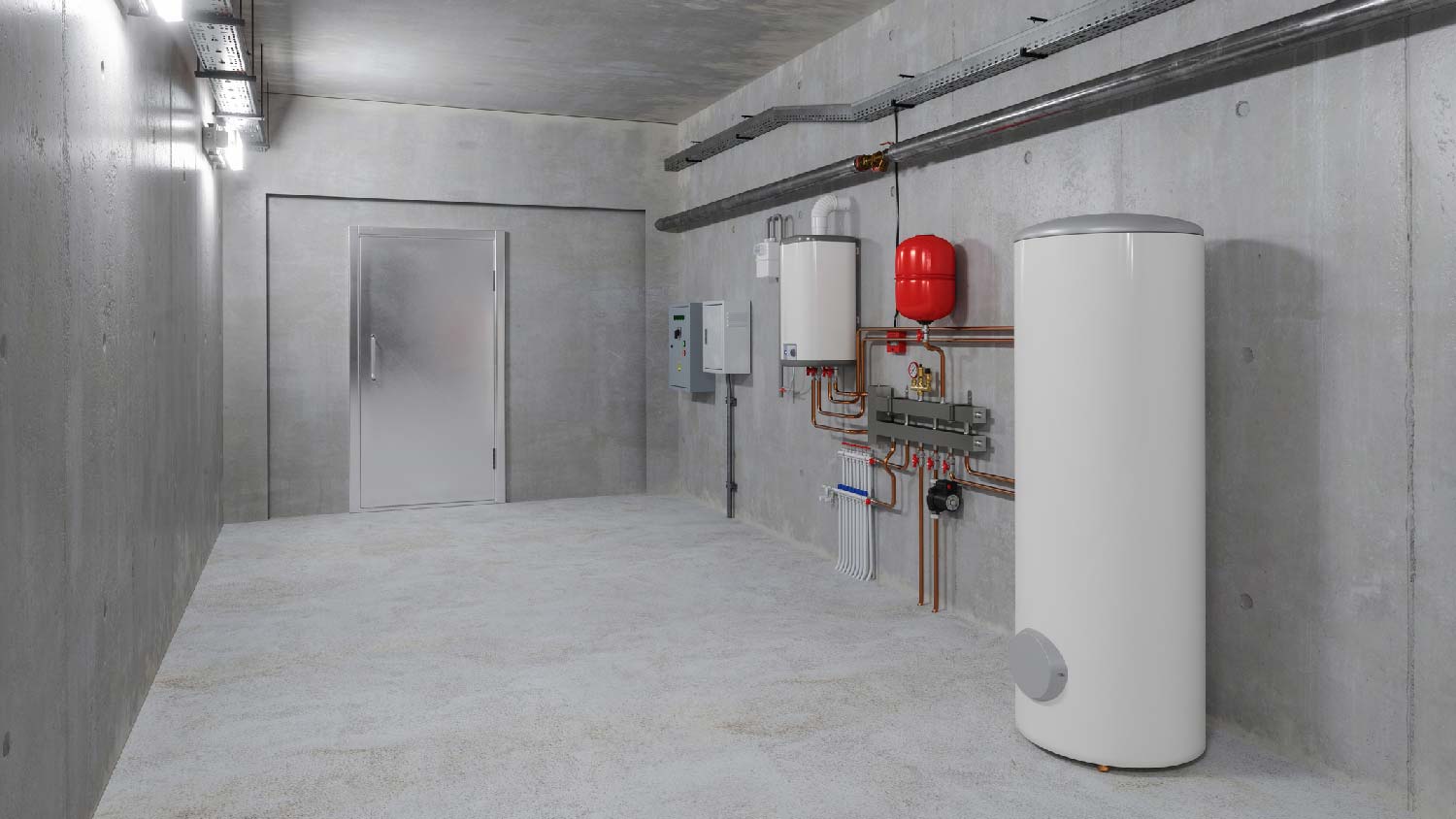
Learn all the factors that influence the cost to install a heat pump water heater at your home.
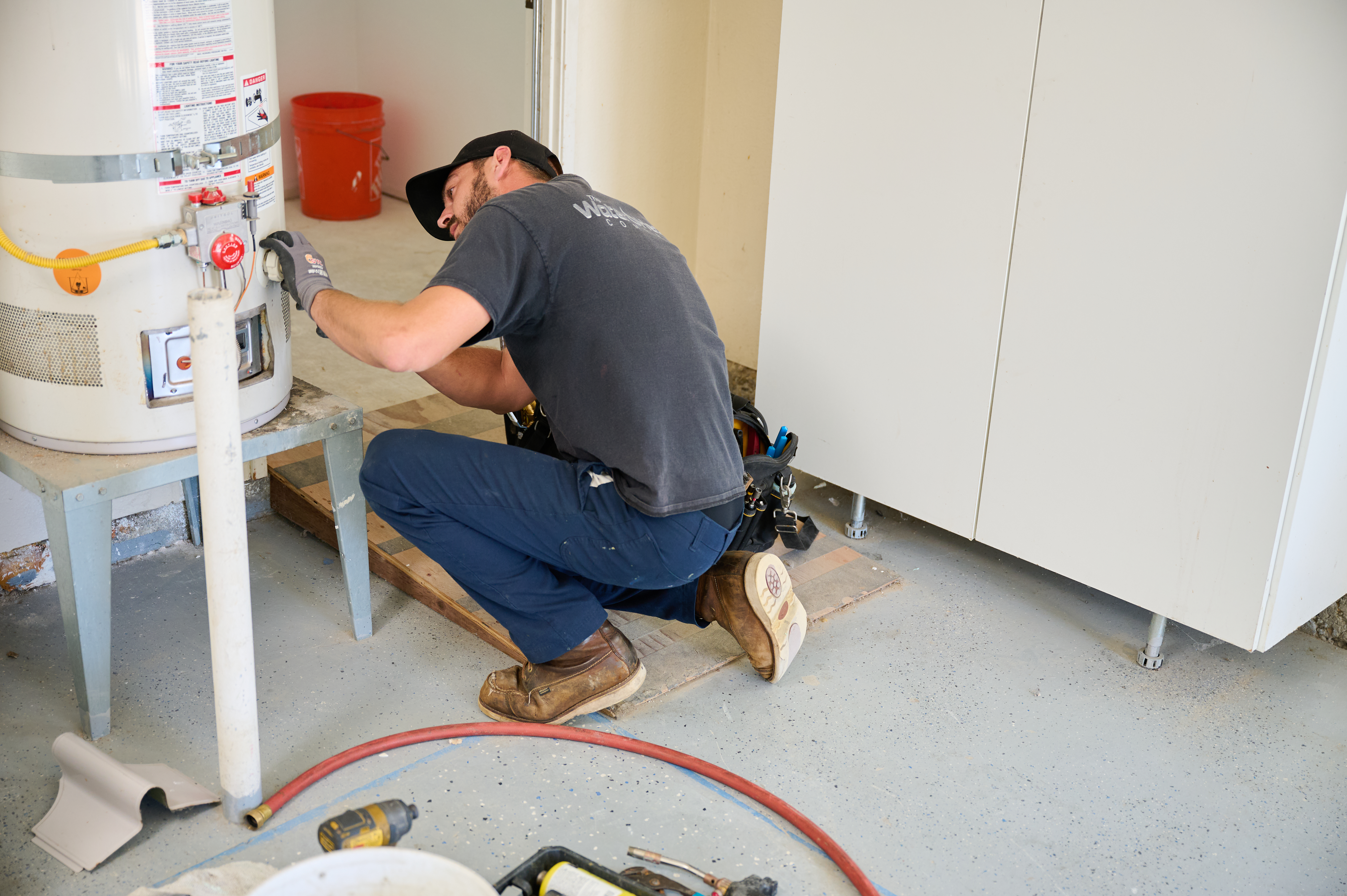
Tankless water heater costs depend on the size of your water heater, location, fuel type, and more. Keep reading to calculate your expenses.

There are many parts of a hot water heater. The type you need to deal with depends on your water heater. Here's what each part does.

Discover all the tankless water heater pros and cons you should know. Learn how these energy-efficient systems can save you money and space while considering their limitations.
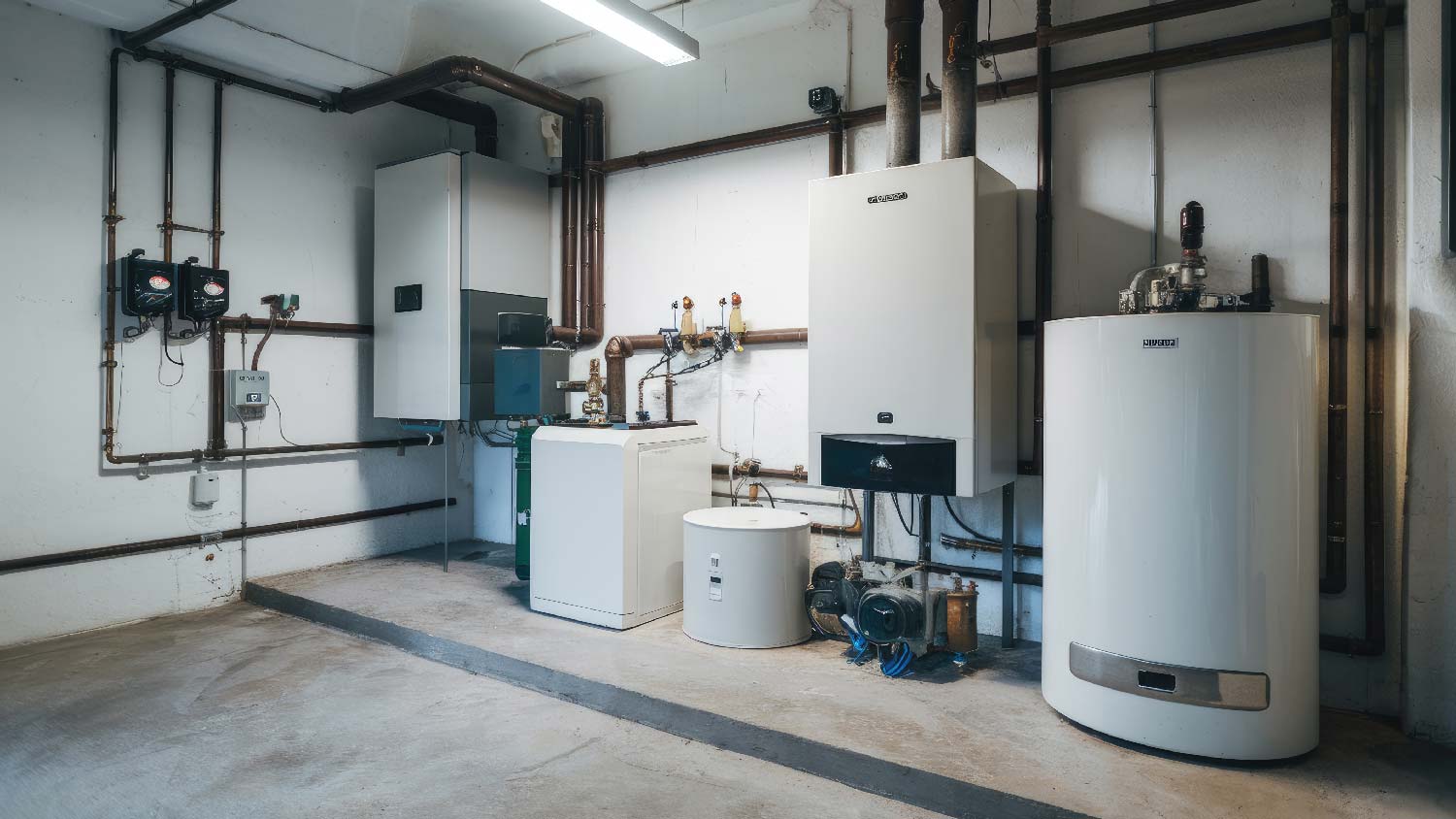
Hot water tanks heat your home’s water supply. Find out whether to choose a tankless water heater or tank unit based on cost, maintenance, efficiency, and other factors.